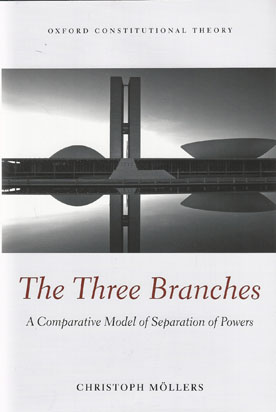
The idea of the separation of powers is still popular in much political and constitutional discourse, though its meaning for the modern state remains unclear and contested. This book develops a new, comprehensive, and systematic account of the principle.
It then applies this new concept to legal problems of different national constitutional orders, the law of the European Union, and international institutional law. It connects an argument from normative political theory with phenomena taken from comparative constitutional law. The book argues that the conflict between individual liberty and democratic self-determination that is characteristic of modern constitutionalism is proceduralized through the establishment of different governmental branches.
A close analysis of the relation between individual and collective autonomy on the one hand and the ways lawmaking through public institutions can be established on the other hand helps us identify criteria for determining how legislative, administrative, and judicial lawmaking can be distinguished and should be organized. These criteria define a common ground in the confusing variety of western constitutional traditions and their diverse use of the notion of separated powers.
They also enable us to establish a normative framework that throws a fresh perspective on problems of constitutional law in different constitutional systems: constitutional judicial review of legislation, limits of legislative delegation, parliamentary control of the executive, and standing. Linking arguments from comparative constitutional law and international law, the book then uses this framework to offer a new perspective on the debate on constitutionalism beyond the state.
The concept permits certain institutional insights of the constitutional experiences within states to be applied at the international level without falling into any form of methodological nationalism.